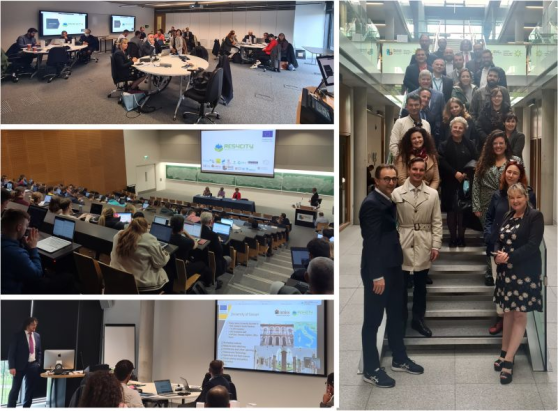nyheter
2023 > 01

The RES4CITY kick-off event took place on 6 October 2022 at Maynooth University.
As part of the event, students, faculty and industry partners joined the RES4CITY partner consortia in celebrating the project’s launch.
Professor Brian Donnellan, Vice President for Engagement & Innovation and Interim Vice President for Research at Maynooth University, and Prof McNamara, Head of the School of Business and incoming Dean of Social Sciences at Maynooth University, participated in the event.
The event feature 17 project partners from across Europe, including the United Nation Training and Research Centre (UNITAR), based in Switzerland, with Mr Alex Mejia, Director of UNITAR’s Division for People and Social Inclusion, presenting at the event.
WiTEC Sweden was represented by Ozana Jaurelius, our project administrator.

Posted by Maria Daniela Perez on January 10, 2023
Posted by Jennifer Read, EMS Now | Jan 10, 2023 | Analysis, Europe, skilled labor shortage, Women in Tech
The EU Chips Act is intended to build regional semiconductor manufacturing capability to support advanced electronics manufacturing. But where will all the skilled workers come from?
METIS (MicroElectronics Training Industry and Skills) was launched in November 2019 as a Sector Skills Alliance on Microelectronics to “bridge the skills gap in microelectronics for a more competitive Europe and to pave the way for EU leadership in data driven technologies, enhancing high-skilled labor supply, addressing emerging skills needs and identifying jobs of the future in the era of connected intelligence.”
A recently released report, based on comprehensive survey results, revealed that 96% of the respondents reported some amount of mismatch between the skills taught in training and education institutions and the needs of the organization. In other words, there is an urgent need for better microelectronic skills training across all institutions. For example, the development of completely new ESCO profiles related to microelectronics, including
- Microelectronics designer => Focus on developing and designing systems, from the top packaging level down to the integrated circuit level. System-level understanding with analogue and digital circuit knowledge, integrating the technology processes. Overall outlook in microelectronic sensor basics.
- Microelectronics smart manufacturing engineer => Microelectronics smart manufacturing engineers design, plan and supervise the manufacturing and assembly of electronic devices and products, such as integrated circuits, automotive electronics or smartphones, in an Industry 4.0 compliant environment.
- Microelectronics materials engineer => Design, develop and supervise the production of materials that are required for microelectronics and microelectromechanical systems (MEMS), and can apply them in these devices, appliances and products.
- Microelectronics maintenance technician => In charge of preventive and corrective maintenance in semiconductor manufacturing.
The report goes into detail about the following recommendations:
- Increase the involvement of the microelectronics industry in the education process
- Develop clusters and networks favoring dialog between industry and education representatives
- Communication campaigns to improve the image of the sector
- Sponsor state-of-the-art manufacturing infrastructures
- Shared facilities: large companies, education players, SMEs and research?
- Adaptation to the EU digital compass?
- Develop joint degrees in microelectronics
- Favor intra and extra-EU mobility
Here’s a copy of the complete report. Read the original article at emsnow.com


